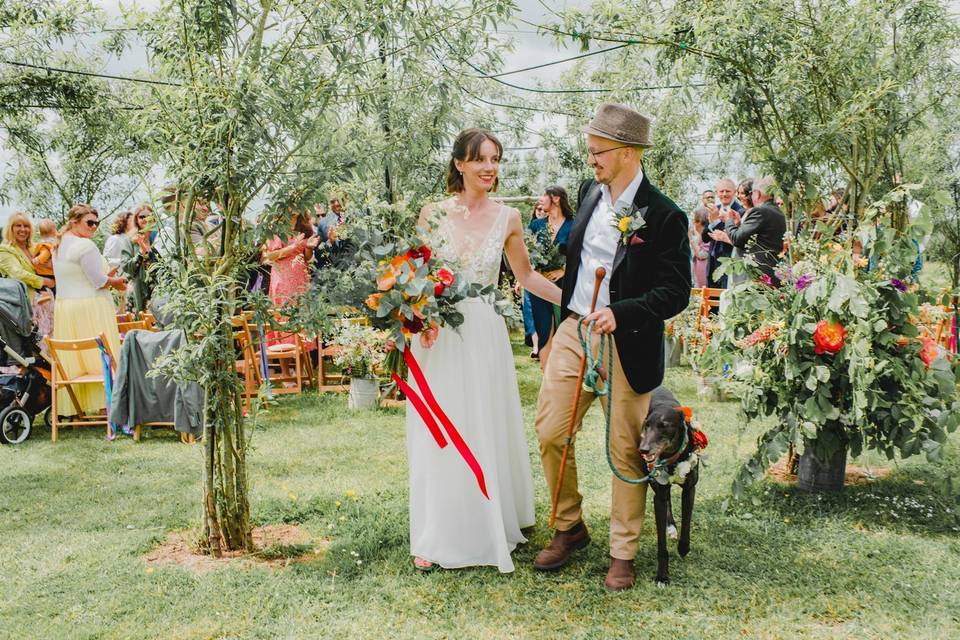How to Postpone Your Wedding: 8 Steps to Take Now
UK weddings will not take place until July at the earliest, according to Government guidelines. Here's a simple step-by-step guide to how to postpone your wedding, and top tips for making the difficult decision as smooth as possible
We have included third party products to help you navigate and enjoy life’s biggest moments. Purchases made through links on this page may earn us a commission.
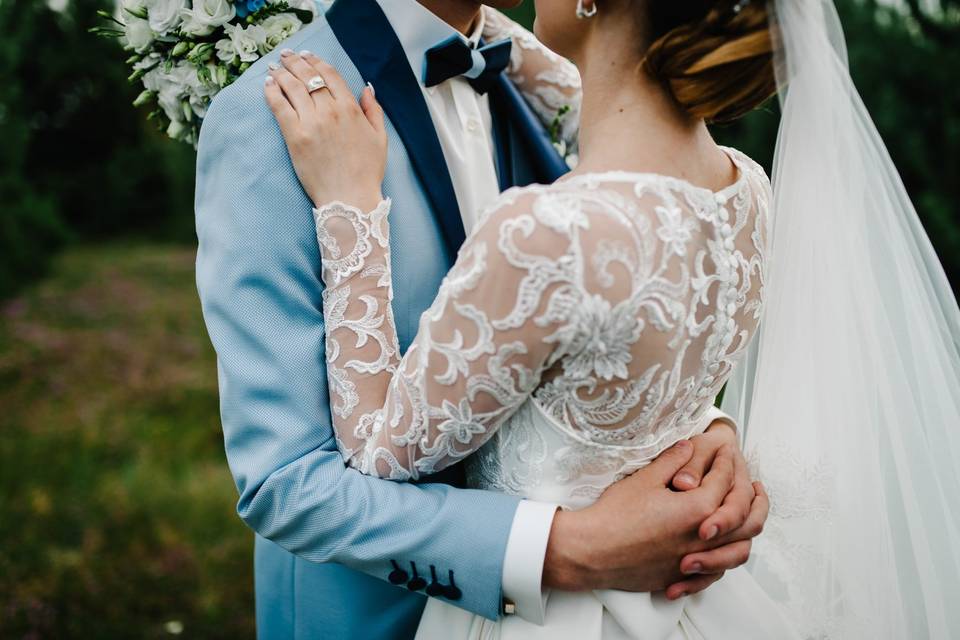

It’s a strange and unsettling time in the world at the moment amid the Coronavirus pandemic. For those planning a wedding in the coming months, it’s an especially confusing time.
Prime Minister Boris Johnson has banned social gatherings until at least July, when the Government will review the situation again. While lockdown rules may ease over the next few months, it’s unlikely that large gatherings, like a wedding, will be allowed until the situation is stable – and when they do, what will they look like and how many people will be allowed to attend?
A Hitched survey found that 76% of couples with weddings before the end of July are postponing their date. The majority of those are taking the safe approach and transferring their big day to 2021 rather than later this year. If you’re planning a wedding for 2020, it may be increasingly clear to you that you need to postpone your day, and we’ve created a simple guide to the steps you need to take to do that.
The slow unfurling of news around Coronavirus means the stressful process of deciding to postpone has been dragged out for a lot of couples – but for those who made the decision, it’s felt like taking back control of their day.
“One of the most difficult things about the whole process was watching the slow death of our wedding in live TV briefings,” says bride-to-be Helen Pegden. “We went from thinking two weeks ago, ‘We can just honeymoon in Cornwall instead of Italy’, to ‘Actually this might not happen at all’. The relief of making a decision to postpone stopped the TV bulletins feeling like such a personal attack on our day and we have regained some control.”
Below are answers to the biggest questions you might be asking right now, and a step-by-step guide on how to postpone your wedding due to COVID-19.
- Should I Postpone My Wedding?
- How Do I Postpone My Wedding?
- What Alternatives Are There to Postponing My Wedding?
- Is It the Same for Destination Weddings?
- How Should I Keep My Guests Informed?
- What Does My Wedding Insurance Say About Postponing?
Should I Postpone My Wedding?
Postponing your wedding day is an incredibly hard decision to make. Not only may there be financial factors involved, but delaying a day of celebration with all your loved ones is emotionally very difficult. However, there’s plenty of official advice which will make your decision easier.
- The Government and NHS’s advice is clear: large gatherings cannot take place until the reproduction rate of infection is under control. While we don’t have an exact date for this, it definitely will not be before July. Even in July, when some hospitality venues may reopen, social distancing will have to be maintained.
- All Church of England churches have closed with immediate effect so no church weddings will be taking place until further notice.
- Registry offices are closed until further notice, meaning civil ceremonies cannot go ahead, nor can couples attend to give notice of a marriage. As you need to give at least a month’s notice to marry, civil ceremonies won’t be able to take place here until August at the earliest, if they reopened in July. Check with your local registry office for more information on your area – they should have updated their website.
- Even if registry offices do start holding civil ceremonies and registry office weddings again, some have already said that they will keep to a limit of just the couple and witnesses until the end of August 2020 and possibly beyond this.
The current Covid-19 situation is a waiting game for those marrying after June. We simply don’t know what’s going to happen over the next few months. If you have a summer or autumn wedding and can’t decide yet whether to postpone, there’s a few questions to ask yourself to help decide:
- Do I want my wedding to go ahead when parents, grandparents, pregnant friends and family, other elderly relatives or at-risk loved ones may not be there due to needing to isolate?
- Do I have guests who won’t be able to attend because of travel restrictions?
- Will I be putting my loved ones at risk if they do attend?
- Is having every single guest there most important, or is it having the wedding day you envisioned and planned (e.g. a summer not a winter wedding)?
- Would I be able to choose who I wanted there if I was limited to 10 or 50 guests?
Those are seriously difficult questions to answer. The truth is that every wedding is different, and you need to assess with your venue, your suppliers and your guests what the right thing is for you to do as a couple. Communication is absolutely key: talk to elderly relatives, talk to your insurance, talk to your suppliers, talk to friends and family. Above all, this needs to be a decision you and your partner are 100% happy with so don’t forget to be totally honest with each other.
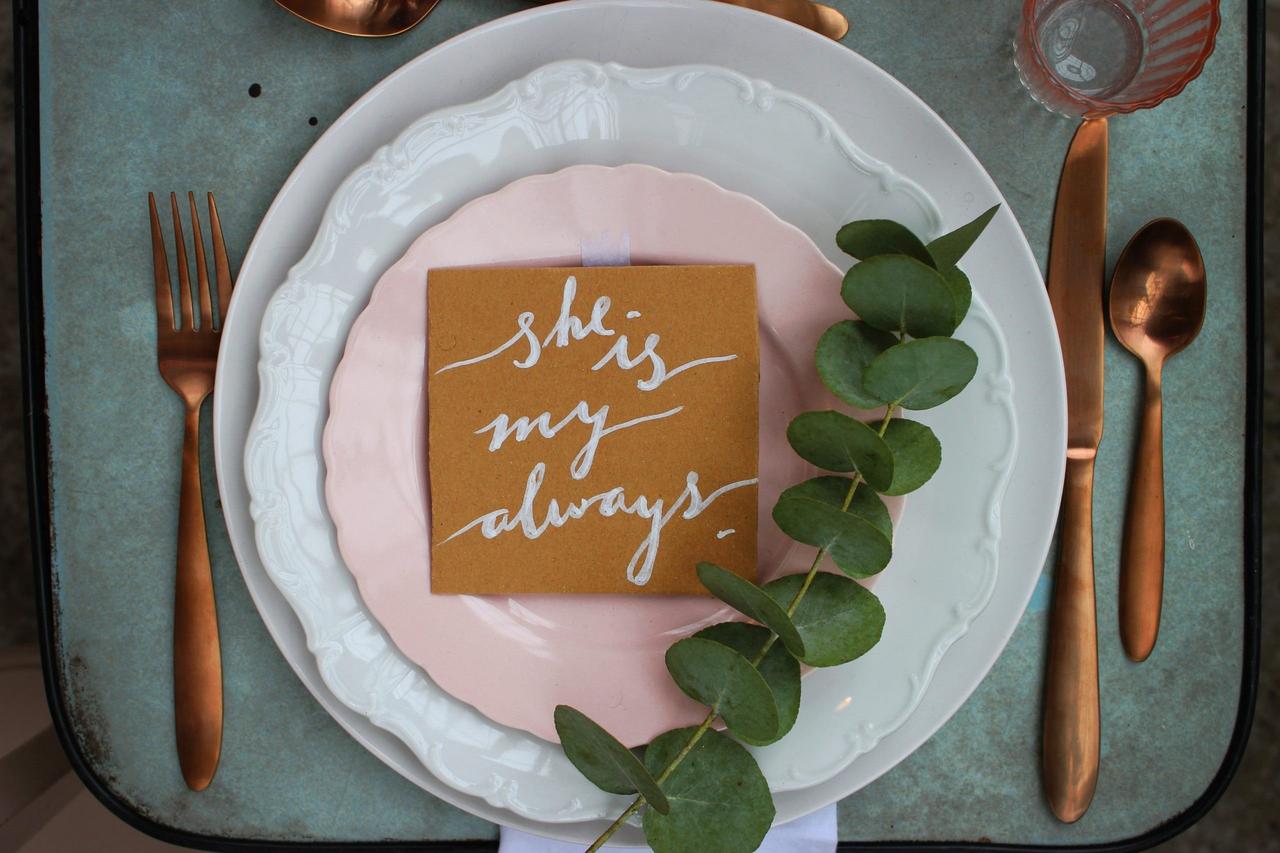
How Do I Postpone My Wedding?
If you take the decision to postpone your wedding, these are the steps you need to take:
1. Let Your Venue and Suppliers Know Your Decision ASAP
The first thing you need to do when you decide to postpone is to speak to your venue and suppliers. You may have already been contacted by them to discuss their plans for the next few months – but bear in mind the information you had last week may no longer be relevant. If you decide to postpone your wedding, the first people you need to contact are your venue and suppliers and you’ll want to touch base with them across the next few months as any major updates happen.
Your wedding professionals should be understanding of your decision and will often be able to offer helpful guidance on the next steps. That could be everything from securing you a future date, coming up with a payment plan for you, or helping you to reprint invites.
“Speaking to our venue and suppliers was so much easier than we anticipated,” says bride Imogen Barlow. “We picked out some dates that would work for us and emailed all our suppliers to let them know our decision and to ask if we paid in full now, whether we could transfer our booking to another date.
“All our suppliers responded within 24 hours with really supportive, heartfelt messages and to let us know which of our dates they were available on. They all agreed to transfer our bookings without any additional costs.”
Do bear in mind that your suppliers are often small businesses whose livelihood is being threatened by the pandemic too – be patient with them as they deal with calls from all their couples, give them some time to get their head around their own insurance policy and simply be kind. They understand how devastated you are about postponing and want you and your guests to be safe, just like their employees.
Hitched’s Advice: The smoothest way of postponing your wedding is to keep your current venue and suppliers. We realise this may not always be possible, but you already have a relationship with them and they are likely to do whatever they can to keep their commitment to you. If you decide to find another photographer, for example, you might struggle if photographers are prioritising postponements of couples they already had booked.
2. Understand Your Contracts
You may have paid either a deposit or the full amount for your venue and suppliers. It’s important then to pull out the paperwork and read through your contracts thoroughly to understand what your options are. If you’re postponing, see if there’s any clause about having to pay a fee to rearrange dates. At the moment, venues and suppliers are being very flexible so it shouldn’t be an issue.
If you’re having to cancel certain vendors, see what your contract says about a full or partial refund. It’s possible you may need to consult a lawyer if there is any doubt.
One thing you’ll want to look out for is a force majeure clause. This can mean that your venue or suppliers are not required to fulfil their contractual obligations due to unforeseeable circumstances beyond their control..
Hitched’s Advice: You need to be flexible too. If you want to find the nearest available date to reschedule, you might have to accept a Friday, Sunday or even a weekday. Fully or partially outdoor venues will probably be OK in September, but you’ll need an indoor plan-B if you have your wedding from October onwards.
3. Read Through Your Wedding Insurance
It’s always a smart move to get insurance for your wedding. You’ll want to consult your insurance plan and contact your provider to find out if an event like the Coronavirus pandemic is covered. Unfortunately, this will really depend on your plan.
As wedding venues have been forced to close and registrars stopped conducting civil services because of the Government-enforced lockdown, you may well be covered for any lost money or unexpected costs.
Most major wedding insurers have now released guidelines on their position. You should read through your contract and try to speak to someone on the phone at the insurance company. Always get them to send you a follow-up email with everything you discussed in the phone call if you do, so it’s all down in writing.

4. Make a Plan to Inform Your Guests
Once you’ve confirmed with your venue and suppliers that you plan to postpone or cancel, you’ll need to tell your guests. The easiest way to do this is via an email to your guests alongside a message on your wedding website. You’ll want a simple, to-the-point message, saying that you guests’ safety is of the utmost priority and you’ve decided to postpone the wedding until a date when you hope everyone will be able to attend. Add a list of FAQs your guests might have, like what the new date might be, can they get refunds on their travel or hotels, etc.
Elderly guests will appreciate a phone call too. If they’re stuck inside and feeling a bit lonely, a call will cheer up their day and yours, even with the sad news the wedding won’t be happening soon.
If you’d rather speak to everyone on the phone, split the calls up between you and your partner, your family and close members of the wedding party. It’s too much for you take on just as a couple and will be much quicker to get done.
5. Find Out If You Can Help Your Guests
Reach out to any hotels that you negotiated room blocks or discounts with and speak to them about a refund (full or partial) for guests. It’s one thing off your friends and families’ mind, and will be easier for one person to speak to the manager about than 20 phone calls with individual guests.
Consider what else you can do to help those struggling right now, as it can make a positive out of a bad situation. If your caterer has already ordered the food for your wedding and can’t cancel it, you could ask for them to donate the food to a homeless centre or soup kitchen.
6. Let Yourself Cry
It’s not silly to need to feel sad about the wedding day you should be having. You are allowed to feel upset and disappointed. Yes, the world is facing some pretty major problems at the moment, but your sadness is valid too. Speak to someone about this who you know will listen and acknowledge your feelings (we all have that friend who’s a little too tough love) – your partner, parent or best friend can help you begin to cope with your feelings and focus on the positives, like the safety and health of those you love.
Hitched’s Advice: It is absolutely OK to postpone your wedding for as long as you need. If you’re meant to have a May wedding and you’re offered a date this December, you don’t have to take it. Whisper it, but you are allowed to be picky about the wedding day you want. If that means waiting from May 2020 to May 2021, you do you!
7. Celebrate the Day
Even if you can’t have the wedding, that day is an important and significant one. Celebrate and honour it in a meaningful way as a couple. That might just be buying an extra nice bottle of wine, getting a takeaway and watching your favourite movie at home. We’ve got 12 sweet ways to honour your original wedding date here.
8. Kickstart Planning the New Day
Set a new date with your venues and suppliers? Awesome! If it has been changed to later in the year, you’re probably marrying in a completely different season. You’ll want to start thinking about how you can adapt what you already have (this isn’t a time to buy whole new décor). Read up our guide on 31 creative ways to update your wedding for a new season.
Can you make a Pinterest board of seasonal flowers your florist can put in your bouquet? Can you think of a cool cover-up to wear with your sleeveless dress if the weather is colder? Are there some really simple things like autumnal bowls of red apples you can weave into décor and centrepieces to make a nod to the new season? If you’re hiring groomswear, can you choose a more wintry style? Can you look up real weddings at your venue and find the best places for photos during that season? Get yourself excited about your new wedding day.
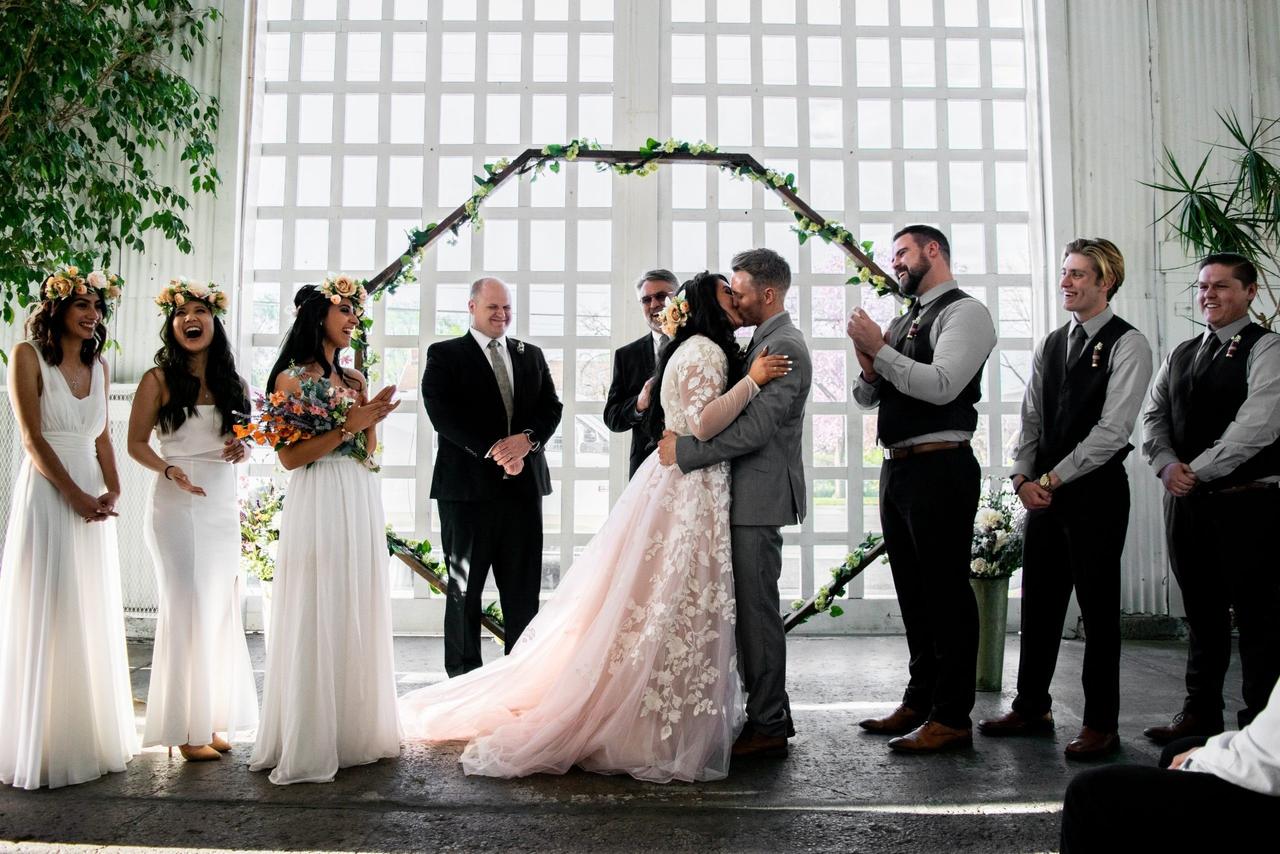
What Alternatives Are There to Postponing My Wedding?
The Government advice is to avoid mass gatherings, so it seems pretty clear that postponing your wedding is the best thing to do. If you’re wedding is still planned to go ahead later in the year and you decide to continue, consider ways to reduce the impact:
- Have a legal ceremony with just a few close family and friends (under 10 preferably), and wait to hold a celebrant-led ceremony and reception later in the year
- Keep numbers as low as you can and live-stream your ceremony to elderly and other guests on Facebook or Skype
- Have a virtual guestbook so people can leave video messages for you and not all handle the same book and pens
- Skip buffets and ask your caterer to do plated food
Is It the Same for Postponing a Destination Wedding?
The Foreign Office (FCO) has advised against all but essential travel for Britons until further notice so if you have a destination wedding planned in the foreseeable future, it won’t go ahead. You’re likely to have a wedding planner who can do plenty of the communication with suppliers for you so utilise them. It’s a sad fact, but it may be that small resorts and business go into administration due to the pandemic and you’ll want to get an honest feeling from your wedding planner whether your venue or supplier will still be operating next year.
Luckily, you are likely to have more protection through your insurance. If your wedding and travel were booked before the Coronavirus pandemic, you have a good case to claim on your insurance as the Foreign Office has advised against travel. You’ll need to contact your wedding insurance provider and ask guests to contact their travel insurance providers. Be aware that with changing interest rates, even if you can get your deposits refunded, you might lose out on money.
Boris Johnson has said that soon the UK will be introducing a two week quarantine for visitors travelling into the country or UK citizens returning from travel abroad (this does not include France). This means that after any travel, be it a destination wedding or honeymoon, you’ll need to follow up with two weeks in self-isolation at home. Will this affect whether your guests can come, or your work situation?
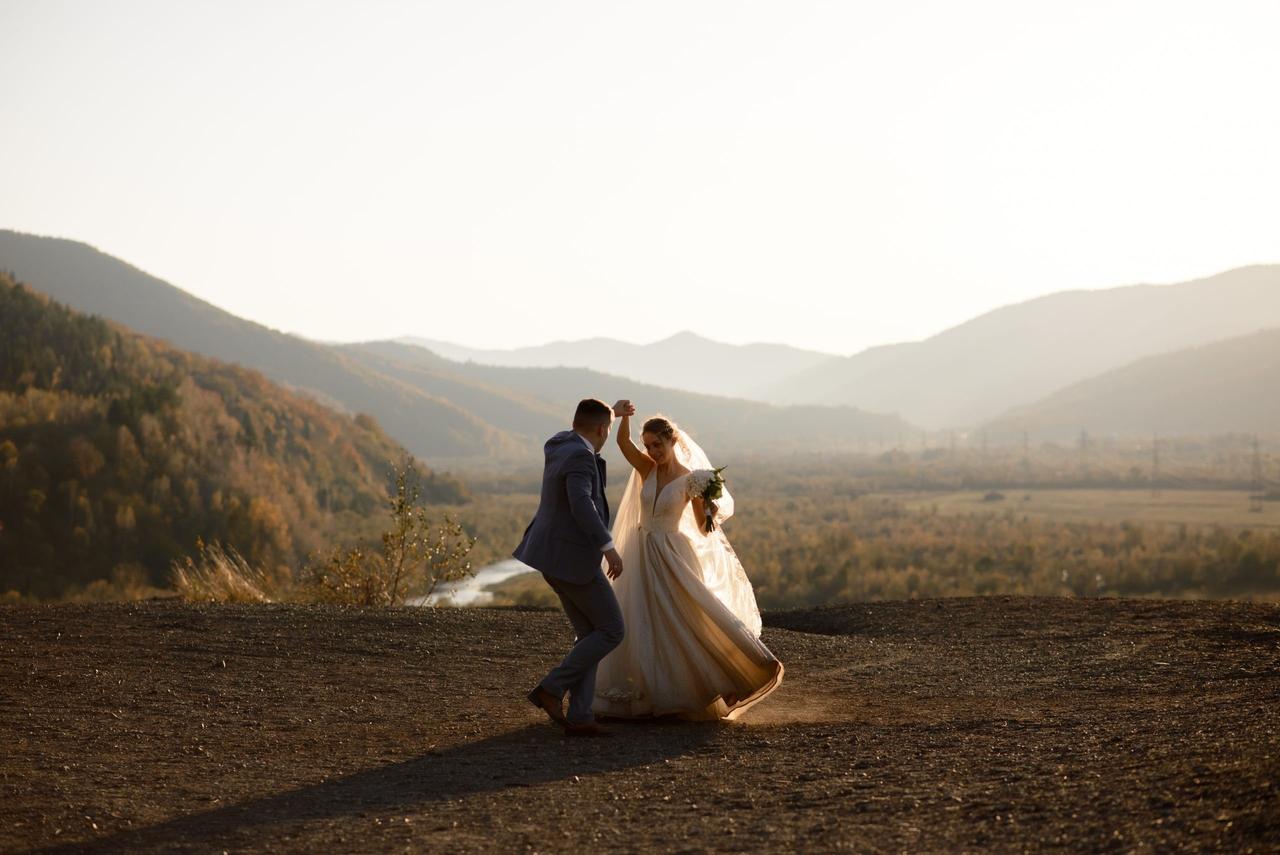
How Should I Keep My Guests Informed?
We’ve covered above the best ways to immediately inform guests of your decision to postpone or cancel your wedding: email everyone, update your wedding website, and call older guests.
Your wedding website will be vital for updating guests as and when you need to. As any new information comes through, especially big news like your new date or travel/accommodation updates, make sure this is going on there.
Not got a wedding website? Make one now. Here’s our pick of the nine best wedding websites.
What Does My Insurance Say About Postponing My Wedding?
You must speak to your individual insurance provider about this, but here’s a general overview of what many insurers are doing about postponed weddings.
- You may get reimbursed for any reasonable additional costs to rearrange your wedding date. This means if costs go up for a supplier, they’ll usually cover reimbursement of up to 25% of the original cost
- If the venue or supplier has closed permanently and the wedding cannot be rearranged or refunded, your policy should cover you
- If you rearrange your wedding date, your insurance may roll on for no extra cost up to 24 months from your original date
- If a supplier cancels because they are self-isolating, your insurance does not cover this and costs must be recovered from the supplier
Note that if you choose to cancel your wedding under the current Coronavirus circumstances, your insurance policy will likely not cover you.
Whatever happens, the important thing to remember is that you and your partner have each other. The wedding is being postponed by circumstances outside your control and the safety and health of you and your loved ones is paramount. A happy wedding day, full of love and joy, is waiting for you the other side of this pandemic, so hold on for now as good things are coming in time.

